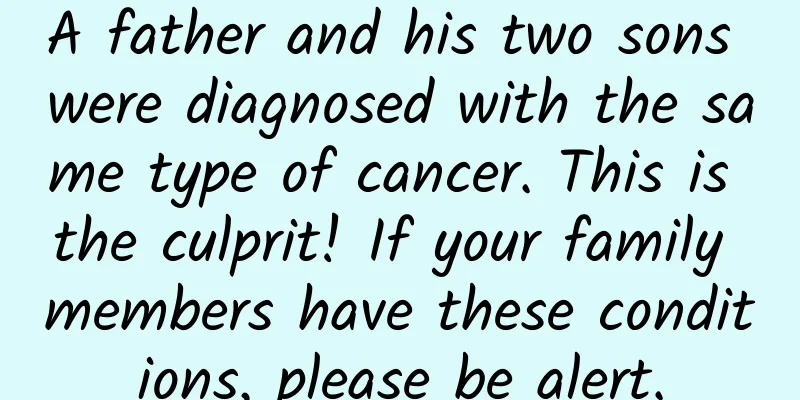Say “No” to Liver Cancer

|
Lao Wang, 50 years old, is a workaholic who often drinks at social gatherings. Recently, Lao Wang has just taken over a job that is very demanding. He feels very stressed and often works overtime and stays up late to complete tasks. He also eats irregularly. Recently, he began to feel stomach pain, but he thought it was a stomach problem caused by irregular meals, so he didn't pay attention to it. His complexion also gradually became sallow, but he also thought it was because he stayed up late and didn't get enough rest. Until one day he had a high fever and went to the hospital for a comprehensive examination, he found out that he had liver cancer. 1. What are the symptoms of liver cancer? (1) Pain in the liver area: The vast majority of patients with advanced liver cancer experience pain in the liver area as the first symptom, with an incidence rate of over 50%. (2) Digestive symptoms: decreased appetite, upper abdominal fullness after meals, belching, indigestion, nausea, etc. are common digestive symptoms of liver cancer, among which decreased appetite and abdominal distension are the most common. Diarrhea is also a common digestive symptom of liver cancer. (3) Abdominal mass and jaundice: Liver cancer is a rapidly growing malignant tumor. The growth of liver cancer increases the size of the liver, and patients can feel a mass in their upper abdomen. Jaundice is a common sign of advanced liver cancer. The patient's skin, mucous membranes, and sclera appear yellow, and the urine color becomes darker. The occurrence of jaundice does not necessarily mean liver cancer, but in the late stage of liver cancer, 20% of people will develop jaundice. (4) Fever, weight loss, and fatigue: A considerable number of liver cancer patients will have fever, most of which are moderate to low-grade fever, and a few patients may have high fever, above 39°C, generally without chills. Liver cancer patients often feel more fatigued than other tumor patients, which is similar to patients with chronic hepatitis. Weight loss is also a common symptom of liver cancer patients. As the disease progresses, the degree of weight loss may progressively worsen, and cachexia may occur in severe cases. (5) Bleeding tendency: Liver cancer patients often have bleeding gums, subcutaneous ecchymosis and other bleeding tendencies, which are mainly caused by damaged liver function and abnormal coagulation function. This is especially common in patients with liver cancer and cirrhosis. 2. Who needs liver cancer screening? (1) Patients with hepatitis B or C for more than 5 years and corresponding virus carriers. (2) People with liver disease, aged 40 years or above, and with a family history of liver cancer. (3) People with chronic hepatitis, people who drink alcohol for a long time, people who eat moldy food for a long time, and people who drink water with excessive heavy metal content. (4) People who have symptoms such as discomfort and pain in the liver area and have had abnormal alpha-fetoprotein tests but have not been confirmed to have liver cancer. If you are a hepatitis B patient, it is recommended to have a liver examination every 3 months and actively receive treatment, and continue to observe the treatment process and efficacy. If you are already a patient with cirrhosis, the key to treatment is to prevent and treat liver cancer. 3. How to prevent liver cancer in daily life? To prevent liver cancer, please remember these four points: Do not eat moldy food, drink in moderation, have regular physical examinations, and get hepatitis vaccinations 4. Can regular checkups for hepatitis B patients reduce the incidence of liver cancer? Hepatitis B patients need to go to the hospital for a checkup every 6 months. The checkup items include hepatitis B two-to-half, liver function, hepatitis B virus DNA quantitative, alpha-fetoprotein, liver color Doppler ultrasound, etc. If necessary, the patient needs to undergo liver puncture to remove liver tissue for biopsy. Patients with antiviral indications should strictly follow the doctor's instructions for antiviral treatment, regularly test the virus quantitative, and never stop taking the medicine at will. After 5 years of standardized antiviral treatment, the risk of liver cancer in hepatitis B patients can be reduced by about 50%. 5. Is liver cancer hereditary? Liver cancer is not hereditary, but it has a tendency to cluster in families. This is mainly because hepatitis B is the main cause of liver cancer in my country, and vertical transmission (between mother and child) and horizontal transmission (between family members) of the hepatitis B virus are relatively common, which makes liver cancer have a tendency to cluster in families. If a family member has liver cancer, it is recommended to get screened as soon as possible. 6. Is it easy to get liver cancer if chopsticks are not washed in time? There is a certain risk. The mold in moldy food will produce a toxic metabolite - aflatoxin, which is one of the important causes of liver cancer. If the food residue on unwashed chopsticks becomes moldy, long-term use of such chopsticks may become a cause of tumor induction. |
<<: How much do you know about the dreaded hepatitis B?
>>: "Stones" growing in the gallbladder
Recommend
How many days should you stay in bed after hysteroscopy?
After any operation, the patient needs to rest fo...
Can I eat before having an abortion?
Abortion surgery is the same as other surgeries. ...
Can I get pregnant if my period is not over?
We all know that there are always some men who en...
Do I need to be quarantined after leaving the highway during the epidemic? How to quarantine for 14 days after leaving the highway?
We all know that the new coronavirus is a relativ...
Pregnancy month age check table for gender
When female friends think they are pregnant, they...
Don't do these 4 "eye-damaging" behaviors anymore! If you don't pay attention, your eyes will really be "scrapped"...
Review丨Jin Xiuming, Deputy Director of the Ophtha...
Jack Myers: The marketing value of social networking sites in the United States is expected to reach 1.728 billion US dollars in 2011
Jack Myers has calculated the marketing and adver...
Is it harmful to eat leftover rice the next day? Why don't Westerners eat rice?
Rice is one of the staple foods in the daily diet...
Will touching your breasts make them bigger?
Every woman loves full and tall breasts, but thos...
Generally speaking, being cold during pregnancy indicates a boy or girl
We all know that whether the baby is a boy or a g...
What foods are best for maintaining ovaries?
Women should prevent premature ovarian failure wh...
Do you pull the handbrake when the automatic transmission is in P gear? Are there any tips to avoid forgetting to release the handbrake?
Both the handbrake and the footbrake are mechanic...
How to regulate sweating during menopause?
Women will enter menopause after the age of 50. T...
Menstrual bleeding after taking birth control pills?
Birth control pills are a common method of contra...









